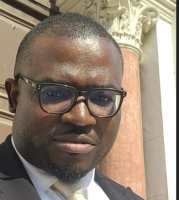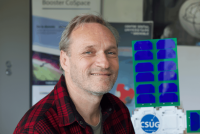Extreme Weather Events
Space & Planetery
Floods & Tsunamis
Remote Sensing & Earth Monitoring
Post-Doctoral Fellowships
Italy
2023.09.01
Mitigating Tsunamis’ Threats and Destructive Impacts Through Enhanced Navigation Satellite System
This project was selected as part of the Joint Call for Projects by the AXA Research Fund and the Intergovernmental Oceanographic Commission of UNESCO (IOC-UNESCO) on Coastal Livelihoods. Explore the outcomes of this research study below.
Tsunamis may be rare, but their impact is catastrophic. Over the last century, 58 events have claimed an average of 4,600 lives each, with millions exposed to the threat every year. The United Nations warns that by 2030 half the world’s population will live in coastal regions vulnerable to these disasters, putting $4 billion in assets at risk annually. Yet, traditional tsunami warning systems, reliant mostly on seismic and sea-level data from seismometers, buoys, and tide gauges, often fall short, leading to delayed alerts, missed events, and false alarms. To close this gap, more reliable technologies are needed.
To that aim, Dr. Michela Ravanelli has been leading the ALTRUIST project, a groundbreaking initiative leveraging the power of satellites for better tsunami detection. While they are typically used for navigation, ALTRUIST employs GNSS satellites to detect atmospheric changes triggered by earthquakes and tsunamis to enhance tsunami warning systems. Developed at Sapienza University of Rome, it is built on a cutting-edge method that combines data from ground shaking, co-seismic displacements, and ionospheric disturbances. During her AXA Research Fund and UNESCO fellowship, Dr. Michela Ravanelli refined the technique to pinpoint the exact atmospheric altitude where tsunami-related disturbances occur.
Tested in Guadeloupe, her prototype demonstrates promising potential to complement existing tsunami early warning systems. It will contribute to more accurate and timely detection, thereby supporting a more integrated approach to global tsunami preparedness. The goal is to scale this technology across tsunami-prone regions worldwide such as New Caledonia in the South Pacific, transforming how coastal communities predict and respond to these deadly events.
Moreover, her 2024 paper presents a deep learning algorithm that transforms GNSS satellite data into images, enabling automatic monitoring and detection of perturbations caused by tsunamis in the ionosphere. Using data from four major tsunamigenic earthquakes – the 2010 Maule, 2011 Tohoku, and 2012 Haida-Gwaii and 2015 Illapel events – her framework successfully detected ionospheric disturbances with high accuracy. This research marks a significant step forward in using GNSS satellite data, offering a powerful tool for tsunami early warning and seismic monitoring.
Beyond this project, Dr. Ravanelli is shaping the future of geoscience, forging collaborations with ETH Zurich, INGV Etna Observatory, IPGP and GeoAzur. As Chair of the IAG Joint Study Group T.36, she is driving innovation in atmospheric and ionospheric research while actively engaging with related initiatives. This year, she presented her work at a number of international meetings, including the UN Ocean Decade Conference, positioning ALTRUIST at the forefront of global tsunami early warning efforts.
May 2025
Scientific Publication: Exploring AI Progress in GNSS Remote Sensing: A Deep Learning Based Framework for Real‐Time Detection of Earthquake and Tsunami Induced Ionospheric Perturbations
Project Abstract: Abstract EGU24-12315
Find out more about the AXA-UNESCO Fellowships on Coastal Resilience
Read More
Michela
RAVANELLI
Institution
Sapienza University of Rome
Country
Italy
Nationality
Italian
Related articles
Renewable Energy
Space & Planetery
Hydropower & Geothermal Energy
Volcanic Eruption
Geology
Post-Doctoral Fellowship
France
Exploring Geothermal Energy in Young European Volcanic Areas
The quest for sustainable and clean energy sources is imperative for our society's future, and geothermal energy holds promise as... Read more

Ekeabino
MOMOH

